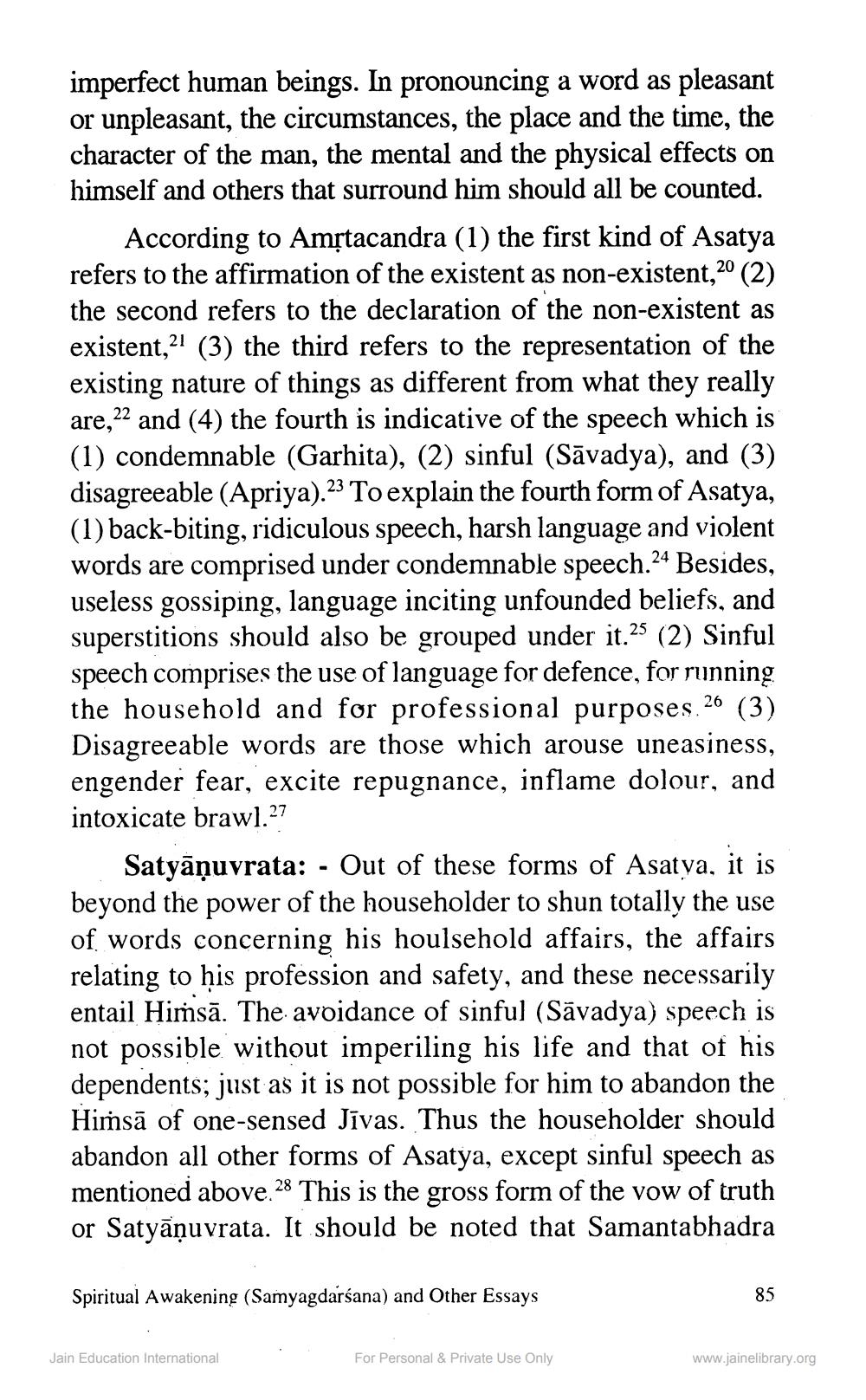________________
imperfect human beings. In pronouncing a word as pleasant or unpleasant, the circumstances, the place and the time, the character of the man, the mental and the physical effects on himself and others that surround him should all be counted.
According to Amstacandra (1) the first kind of Asatya refers to the affirmation of the existent as non-existent,20 (2) the second refers to the declaration of the non-existent as existent,21 (3) the third refers to the representation of the existing nature of things as different from what they really are,22 and (4) the fourth is indicative of the speech which is (1) condemnable (Garhita), (2) sinful (Sāvadya), and (3) disagreeable (Apriya).23 To explain the fourth form of Asatya, (1) back-biting, ridiculous speech, harsh language and violent words are comprised under condemnable speech.24 Besides, useless gossiping, language inciting unfounded beliefs, and superstitions should also be grouped under it.25 (2) Sinful speech comprises the use of language for defence, for running the household and for professional purposes 26 (3) Disagreeable words are those which arouse uneasiness, engender fear, excite repugnance, inflame dolour, and intoxicate brawl.27
Satyāņuvrata: - Out of these forms of Asatya, it is beyond the power of the householder to shun totally the use of words concerning his houlsehold affairs, the affairs relating to his profession and safety, and these necessarily entail Himsā. The avoidance of sinful (Sävadya) speech is not possible without imperiling his life and that of his dependents; just as it is not possible for him to abandon the Himsā of one-sensed Jīvas. Thus the householder should abandon all other forms of Asatya, except sinful speech as mentioned above. 28 This is the gross form of the vow of truth or Satyāņuvrata. It should be noted that Samantabhadra
Spiritual Awakening (Samyagdarśana) and Other Essays
Jain Education International
For Personal & Private Use Only
www.jainelibrary.org




